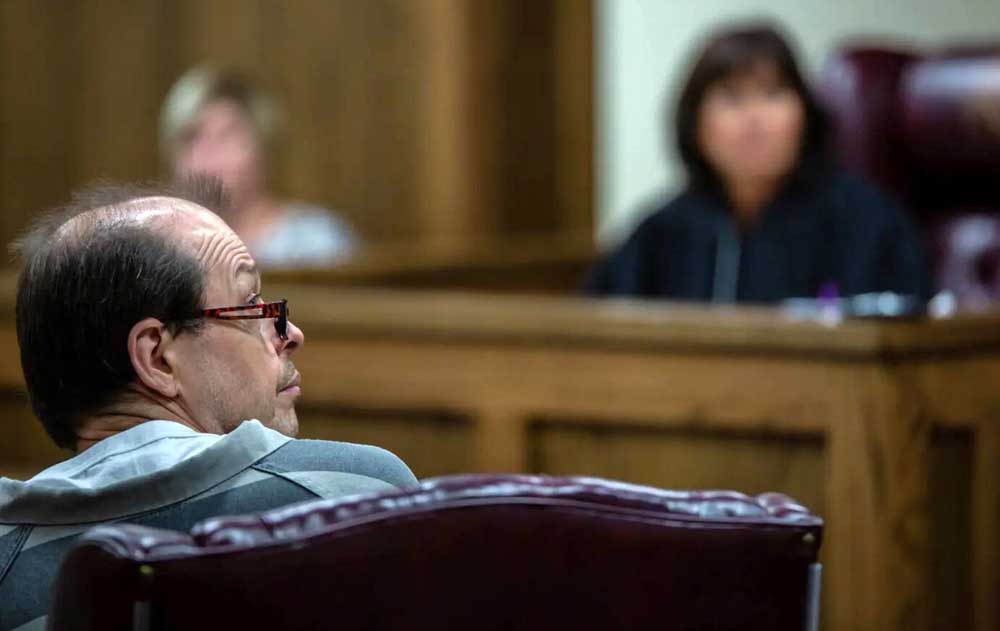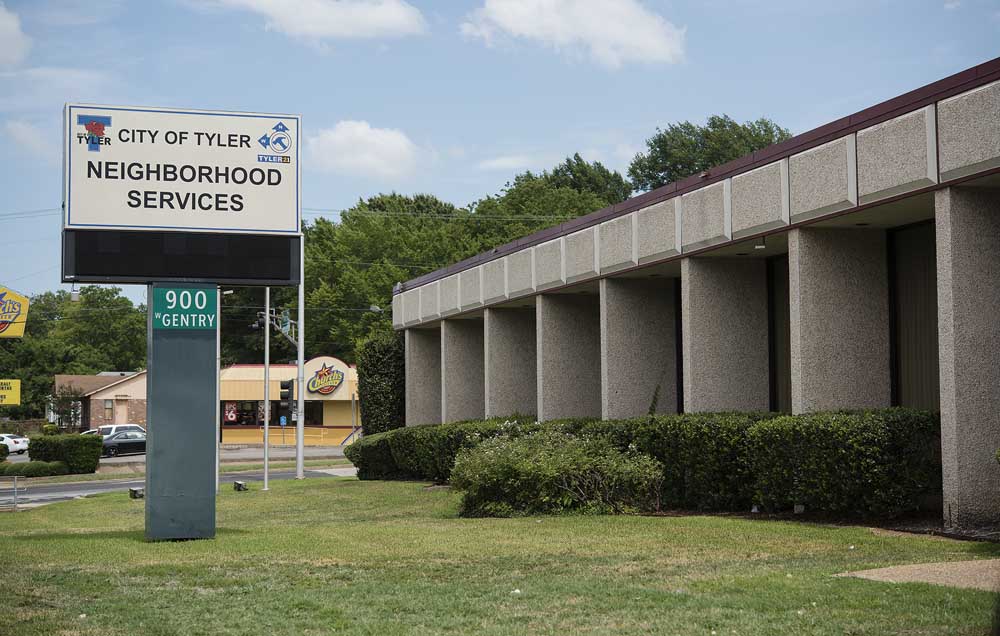Editorial: Who is the real Robert Roberson? Truth about death row inmate is a muddy mess
Published 12:00 pm Friday, November 15, 2024

- East Texas death row inmate Robert Roberson is seen in court. (Shelby Knowles/Texas Tribune File Photo)
Depending on whose testimony, evidence, letter or statement you believe, Texas will execute an innocent man — a stain on our judicial system that won’t easily wash off — or Robert Roberson is, indeed, a child murderer.
Roberson was convicted and sentenced to death in 2003 for murdering his 2-year-old daughter, Nikki, in Palestine. The girl had been severely ill for days before Roberson said she fell off her bed and was then taken to an emergency room.
At the hospital, Nikki was diagnosed with shaken baby syndrome, which implies abuse. That diagnosis and eventual doctor testimony were key in Roberson’s conviction. Recent scientific and medical evidence, however, have shown that symptoms associated with shaken baby syndrome also could point to natural medical conditions. The diagnosis has since been referred to by experts as “junk science.”
Roberson’s attorneys and other experts also have provided evidence that Nikki had undiagnosed pneumonia and was prescribed medications that no longer are given to children her age because of health dangers. They claim those factors, and not abuse, led to her death.
And there are other disputed parts of Roberson’s trial that his defenders bring up — a now-discredited sexual abuse exam on Nikki, unreliable testimony by his ex-wife and more.
This editorial originated as a plea for due diligence to ensure that our state’s most severe criminal sentence is carried out with rock-solid certainty and that real justice, and not political points, is pursued. It’s not like the state hasn’t gotten it wrong before. In the past 50 years, 18 people on Texas’ death row have been exonerated, according to the Death Penalty Information Center.
But in the weeks since Roberson’s execution was delayed after a push by a bipartisan group of state lawmakers, a string of court decisions and finally a legislative subpoena to testify before a Texas House committee, the question of his innocence is increasingly elusive.
The wave of voices proclaiming his innocence has been met by an equal chorus of those doubling down on his guilt.
Family members have spoken up to support Roberson — while others in his family have vilified him. He’s either an abusive father rightfully convicted of killing his daughter or a non-violent, loving family man.
One juror in his trial says she’s haunted by and deeply regrets her decision to convict — while another juror says he’s even more convinced that Roberson is guilty and his punishment just.
The police detective who arrested Roberson now even advocates for his exoneration, and, in contrast, Texas Attorney General Ken Paxton wrote a detailed rebuttal of claims by Roberson’s attorneys, explaining why the conviction is solid. (But we have to question if continued support of Roberson’s conviction by the AG’s office and by Gov. Greg Abbott is really about not wanting to appear soft on crime — in other words, it’s political.)
Roberson likely will die sometime in 2025 at the Allan B. Polunsky Unit in Polk County. The state’s Supreme Court on Friday settled a constitutional powers question created by the lawmakers’ subpoena. The court ruled that legislative subpoenas can’t halt death row executions, and Roberson’s execution date can now be rescheduled. His legal options for exoneration are now miniscule after being rejected by multiple courts.
Despite the polar-opposite views of who Roberson is as a person, the physical evidence points to legitimate questions about his guilt and whether a crime was even committed. In that regard, a new trial is warranted.
Ultimately, the case is a mixed pot of contentious evidence, character accusations and character defenses — in other words, an ambiguous mess of misperceptions and possibly outright lies by one or both sides.
And somewhere in there is the truth about Robert Roberson.






